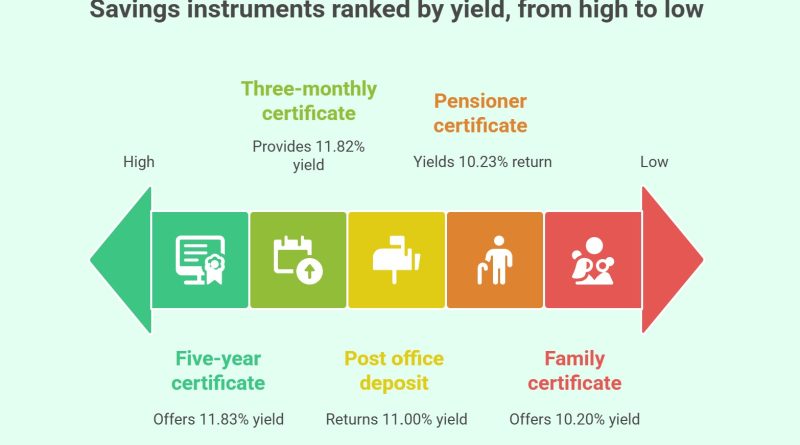Net sales of government savings instruments posted a significant recovery in fiscal year 2024–25, but still ended in the negative territory, reflecting continued investor caution amid high inflation and declining yield rates.
According to Bangladesh Bank data, the net sales stood at negative Tk 60.63 billion in FY25—an improvement from the massive negative Tk 211.24 billion in the previous fiscal year (FY24). However, June 2025 alone saw a reversal, with net sales slipping by Tk 1.69 billion, as redemptions of previously issued high-yielding certificates continued to outpace new investments.
By contrast, May 2025 had recorded positive net sales of over Tk 15.37 billion, signalling temporary investor confidence before the latest rate cuts were announced.
Despite the June dip, the contraction in net sales is far less severe compared to the same month of 2024, when the decline was Tk 33.81 billion—suggesting a moderation in the pressure faced by the savings instrument market.
Over the first eleven months (July–May) of FY25, net sales were recorded at negative Tk 58.93 billion, a considerable improvement from the negative Tk 177.42 billion in the same period of FY24.
Analysts attribute the persisting weakness in net sales to a combination of factors—ranging from sustained inflationary pressure, liquidity challenges in the banking sector, and lower returns, to declining investor confidence amid macroeconomic uncertainty.
The total outstanding balance of savings instruments dropped to Tk 338.49 billion in June 2025, down 2.24 per cent year-on-year from Tk 346.26 billion a year earlier.
Policy Shifts Weigh on Small Savers
The government’s recent move to cut yield rates on various savings certificates—effective from July 1 and valid through December 2025—has dealt a fresh blow to fixed-income earners such as pensioners, widows, and small savers who heavily depend on these tools for stable returns.
Finance Division officials said the yield rates will be reviewed again in January 2026, depending on inflationary trends and overall fiscal conditions. The cuts, they noted, are part of broader efforts to align government borrowing with its tight monetary policy stance and to curb interest expenditures.
However, experts fear the move may further erode real incomes at a time when inflation remains elevated and alternative investment avenues remain limited.
“These instruments are lifelines for vulnerable groups like pensioners and small savers. The return cuts risk undermining their financial security,” said Dr M Masrur Reaz, chairman and CEO of Policy Exchange Bangladesh.
Dr Reaz warned that unless the savings tools are restructured to maintain their appeal to small investors, long-term public confidence in these instruments may wane.
Revised Returns at a Glance
- 5-Year Bangladesh Savings Certificate:
- First slab (up to Tk 750,000): 11.83% (unchanged)
- Second slab: 11.80% (down 3 basis points)
- First-year effective yield: revised from 10.13% to 9.74%
- 3-Monthly Profit-Based Certificate:
- First slab: reduced to 11.82% from 12.10%
- Second slab: revised to 11.77%
- Pensioner Savings Certificate:
- First-year return: reduced from 10.23% to 9.84%
- Second slab: 9.72% (down from 10.11%)
- Family Savings Certificate:
- First-year return: 9.81% (down from 10.20%)
- Second slab: 9.72% (down from 10.11%)
- Post Office Fixed Deposit:
- First-year return: 10.65% (down from 11.00%)
- Second slab: 10.60%
The government first digitised the savings certificate system in 2019 through the launch of the “National Saving Certificates Online Management System” and made e-TIN and NID mandatory for all savers.
Experts say the government must strike a balance between managing fiscal risks and safeguarding vulnerable savers, especially when economic uncertainty and high living costs persist.






